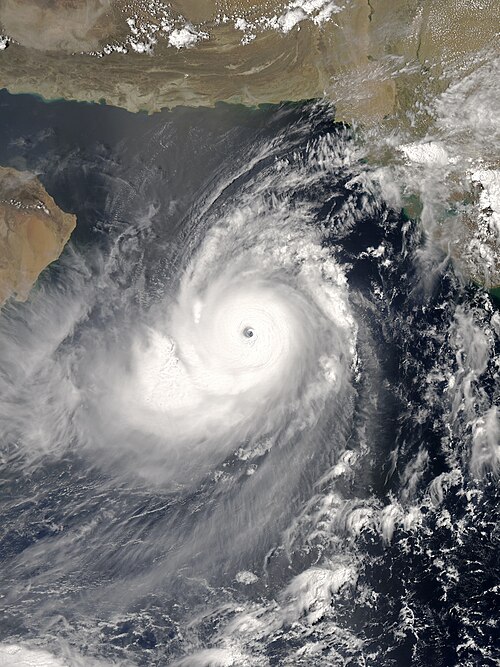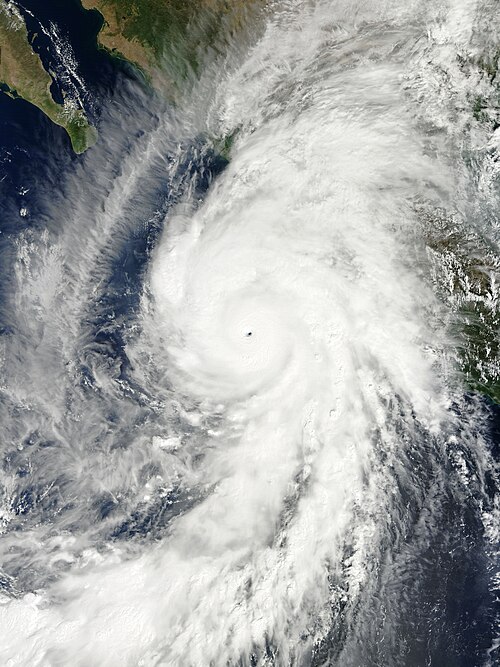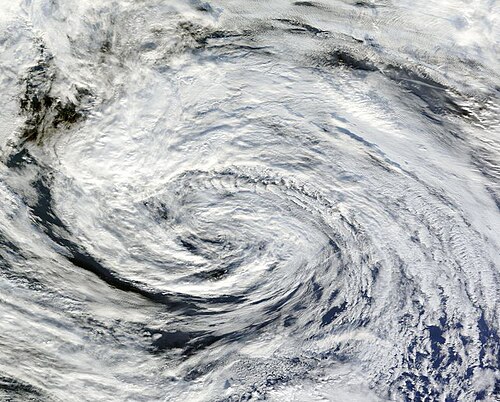Tsunaminoun
A very large and destructive wave, generally caused by a tremendous disturbance in the ocean, such as an undersea earthquake or volcanic eruption. Tsunami are usually a series of waves, or wave train.
Tsunaminoun
(figurative) A large and generally unstoppable surge.
Tsunaminoun
a huge destructive wave (especially one caused by an earthquake)
Tsunaminoun
a long, high sea wave caused by an earthquake or other disturbance
Tsunaminoun
an arrival or occurrence of something in overwhelming quantities or amounts
Tsunami
A tsunami ( (t)soo-NAH-mee, (t)suu-; from Japanese: 津波, lit. 'harbour wave', pronounced [tsɯnami]) is a series of waves in a water body caused by the displacement of a large volume of water, generally in an ocean or a large lake. Earthquakes, volcanic eruptions and other underwater explosions (including detonations, landslides, glacier calvings, meteorite impacts and other disturbances) above or below water all have the potential to generate a tsunami.
Cyclonenoun
A system of winds rotating around a center of low atmospheric pressure.
Cyclonenoun
A low pressure system.
Cyclonenoun
(informal) The more or less violent, small-scale circulations such as tornadoes, waterspouts, and dust devils.
Cyclonenoun
A strong wind.
Cyclonenoun
A South Pacific and Indian Ocean weather phenomenon that results in wind speeds of around 150 to 200 km/h.
Cyclonenoun
A cyclone separator; the cylindrical vortex tube within such a separator
Cyclonenoun
A violent storm, often of vast extent, characterized by high winds rotating about a calm center of low atmospheric pressure. This center moves onward, often with a velocity of twenty or thirty miles an hour.
Cyclonenoun
In general, a condition of the atmosphere characterized by a central area of pressure much lower than that of surrounding areas, and a system of winds blowing inward and around (clockwise in the southern hemisphere and counter-clockwise in the northern); - called also a low-area storm. It is attended by high temperature, moist air, abundant precipitation, and clouded sky. The term includes the hurricane, typhoon, and tropical storms; it should not be applied to the moderate disturbances attending ordinary areas of low pressure nor to tornadoes, waterspouts, or "twisters," in which the vertical motion is more important than the horizontal.
Cyclonenoun
A tornado. See above, and Tornado.
Cyclonenoun
(meteorology) rapid inward circulation of air masses about a low-pressure center; circling counterclockwise in the northern hemisphere and clockwise in the southern
Cyclonenoun
a violent rotating windstorm
Cyclonenoun
a system of winds rotating inwards to an area of low barometric pressure, with an anticlockwise (northern hemisphere) or clockwise (southern hemisphere) circulation; a depression.
Cyclonenoun
another term for tropical storm
Cyclone
In meteorology, a cyclone () is a large scale air mass that rotates around a strong center of low atmospheric pressure, counterclockwise in the Northern Hemisphere and clockwise in the Southern Hemisphere as viewed from above (opposite to an anticyclone). Cyclones are characterized by inward-spiraling winds that rotate about a zone of low pressure.





























